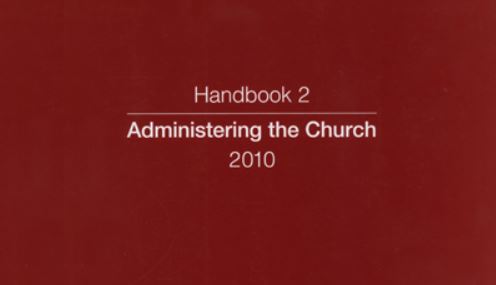LDS Handbook Changes — revelation or response to criticism?

The LDS Church published changes in its handbook and made this available to general membership for the first time. Previously, the handbook was private and only available to general and local leaders.
I haven’t had much time to read up on these changes, but while I was at the gym this afternoon, I noticed there was a new podcast episode reviewing the changes. John Dehlin, the podcaster reviewing these changes and a notorious critic of the Church, summarized some of the changes. From what I understand, most of these changes especially related to excommunication/apostasy/church discipline and also some issues related to LGBTQ members sound pretty positive and will be a blessing for church members. But I was a little triggered by the language Dehlin used especially related to the motives and reasons the Church made changes.
I believe change in the Church is made by a process of revelation. The prophet and general leaders of the Church pray to receive guidance from God on current issues and do their best to understand the will of God in order to make doctrine and policy change.
John Dehlin believes the Church is making changes due to being humiliated by church critics. A random assortment of some of his comments:
This is something we’ve criticized the church about. We’ve embarrassed the church…
I did my best to highlight this to the news media…the church probably heard this loud and clear…
We embarrassed the church about this and noted that, so the church had to change its criteria for apostasy…
It’s so fun for me personally to see the church changing on things we explicitly called the church into account for. It just shows how much the church is sensitive to criticism…
It’s as if internet critics and activists are becoming the prophets of the church. Because we are literally now changing and creating and amending policy for the church…
In some ways the critics are running the church. And that’s great. Kudo’s to the church for listening to critics…
I strongly disagree with these statements. I heard Greg Prince once say that critics like to take credit for change the Church makes from time to time, but they actually often set back change due to creating a hostile environment that pits Church leaders against Church critics and makes it more difficult for Church leaders to ascertain the will of God. I’m not sure about that. If I had to bet, I might say Church critics do have an impact on change in the Church, but I would describe it a different way.
I write often that I hope for various changes in the Church. But I don’t criticize or advocate against Church leaders for the purpose of trying to force that change. I think it’s important that when these changes happen, faithful LDS that support the brethren thank them for their humility and willingness to seek the will of God in revelation, rather than chastise them for not doing it sooner or mock them for giving into critics.
Borrowing also from Greg Prince, I would describe the revelatory process like this. The prophet becomes aware of an issue, prays about it, receives revelation from God, makes change. Church members, the LDS Body of Christ, have an important process in this. Historically, both the prophet and God seem to be swayed by the Body of Christ, in deciding which issues to pray about and what to change. See the story of Zelophehad’s daughters, the time Israel requested a king (Saul), and more recently, when so many members petitioned President Kimball to ask God to consider reversing the priesthood ban. This is called ‘trickle up revelation’. I have written about this a few times over the years, since change has been such a topic in the Russell M. Nelson presidency. If church critics want to take credit for this, that’s fine. I can see that sometimes they might raise visibility on a certain issue that also either either with causality or randomly might become visible to the faithful LDS Body of Christ. But it’s the LDS Body of Christ that’s the key driver for change, in my view.
I believe President Nelson and our other general leaders have listened to the LDS Body of Christ that is pushing up these issues, especially related to LGBTQ members, and they are with humility and honest intent seeking to understand the will of God. I believe these changes in the handbook represent one more example of God and his prophet listening to and honoring his people.